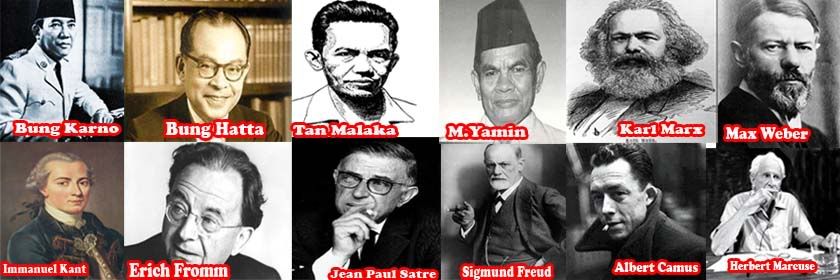Stalin, Joseph (1879-1953)
Stalin, a political name adopted when he was 34, meaning Man of Steel, studied for the priesthood under his real name, Dzhugashvili. Son of a shoe maker, he joined the Social Democratic party after being expelled from a theological school for insubordination. After the RSDLP split in 1903, Stalin became a member of the Bolshevik party.
In Stalin's early years he was continually in trouble with the local authorities. During this period he took the nickname Koba, after the famous Georgian outlaw and the name of a character in the romance "Nunu", by the Georgian author Kazbek. The celebrated brigand Koba was known as a fighter for the the rights of the people, while the fictional Koba was depicted as sacrificing everything in his struggle against the Tsarist authorities on behalf of his people, but unsuccesful, freedom was lost.
Koba escaped prison exile several times, at his last escape he fled to St. Petersburg, where he became a member of the editorial staff of Pravda in 1912. Within a year, Stalin was arrested again and exiled to Siberia. He was released from exile by general amnesty after the February Revolution of 1917, and went back to the editorial staff of Pravda in Petrograd.
After the October Revolution Stalin was elected to the post of commissar for nationalities.
Throughout the following civil war, Stalin ascended the ranks of the government through extensive bureaucratic manoeuvering and in 1922, received the majority vote to become the General Secretary of the Communist party. In the same year Lenin called for his removal, explaining that Stalin had amassed to much power, in what was to become known as Lenin's last testament.
Following Lenin's death in 1924, a wave of reaction swept through the Soviet government. Stalin introduced his theory of socialism in one country, where he explained that Socialism could be achieved by a single country.
Unlike former inner-party debates, where the positions of either side were written in newspapers, talked about in public meetings and soviets; the reaction and practices of the long and devastating civil war, caused a 'debate' that was completely hidden from the public, in order to 'establish the appearance' of a healthy, stable, government.
In 1927, after years of bureaucratic manoeuvering, the members in the government that were part of the Left Opposition were deported on a wide scale. Immediately following, Stalin announced his theory of social fascism, describing that the theories of Social-Democracy and Fascism were essentially the same. Following this new theory, members of Social-Democratic organisations (of which Bolsheviks were once a part) were arrested or deported. In 1929 the right-wing of the Communist party, led by Bukharin, was removed from the so-called "soviet" government by the Stalinists.
In late 1928, Stalin introduced methods of productively advancing the Soviet Union via forced industrialisation and collectivisation. These efforts were tasked out in five year plans, the first of which included a widescale campaign of mass executions, arrests, and deportations of the kulak class.
Russia advanced tremendously from the draconian measures implemented to ensure that "socialism in one country" could survive. Russia moved from complete devastation and destruction after WWI and the Civil War, to become a nation that was one of the most powerful in the world: achieving such goals that 30 years previous would have been viewed as wholly impossible.
From 1934 to 1939 Stalin ordered a series of executions and imprisonments, largely directed towards people within the Soviet government. Half of the members of the first Council of Peoples Commissars were executed in 1938 (A quarter of them had died natural deaths before hand, of the remaining quarter only Stalin lived past 1942). Some government officials executed were thought to be Nazi agents or sympathisers, while others were accused for planning to overthrow the Soviet government. Members of the Left Opposition who were allowed to return to the party after accepting Stalinism were soon executed, those who remained abroad were hunted down and killed. Also executed were people belonging to the right-wing of the party (Bukharin and others). The exact number of people executed is not known, estimates range from thousands to millions.
During WWII Stalin organised and lead the Soviet Union to victory over the invading Nazi armies. [...](http://www.marxists.org)
Share
